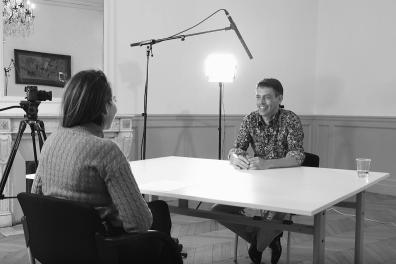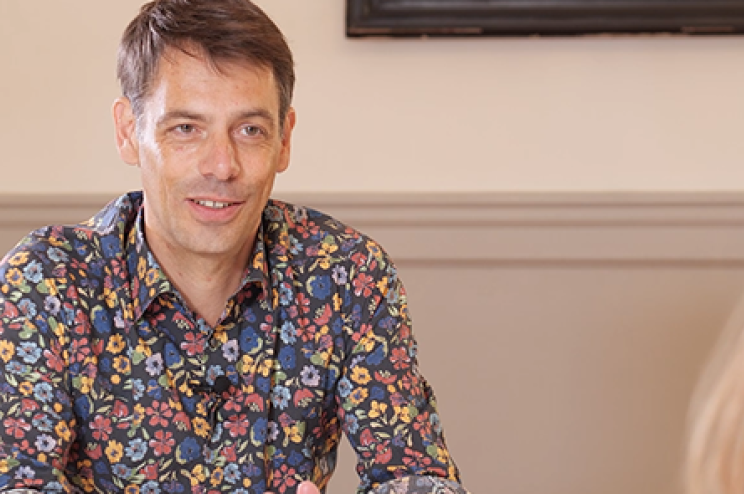Meet Mark Van de Velde, specialist in Bantu languages (LLACAN)

The "Portraits of Researchers in Area Studies" (PEA) is a series of large-format interviews produced by Inalco as part of the Digital Paris Research School of Area Studies (D-PaRSAS) institutional project. Deposited on the MediHal open archive, this series of portraits joins a set of collections on the Language and Cultural Area Studies (LaCAS) platform. These collections aim to build up a living, freely accessible scientific heritage of research on the world's languages, societies and cultures.
Large-format portrait
Video: Meeting Mark Van de Velde, specialist in Bantu languages (LLACAN)
An interview conducted by Sarah Gimenez, young researcher (CERMOM) and Digital Humanities engineer (Direction de la Recherche, de la Valorisation et des Etudes doctorales, Inalco), directed by Alexandre Galitzine, produced by Inalco (17/03/2022).
Podcast:

Mark Van de Velde is a CNRS researcher and director of the Langage, Langues et Cultures d'Afrique-LLACAN laboratory (CNRS - Inalco). He works on the grammatical analysis and documentation of Bantu languages, as well as languages spoken in the Benue Valley in Nigeria which are today classified as belonging to an Adamawa family, but whose genealogical classification within the Niger-Congo phylum remains uncertain.
He is also interested in linguistic typology and the comparative and historical study of Bantu languages, particularly in the field of the nominal phrase.
.
In this interview he stresses the extent to which African languages remain understudied due to a lack of vital forces, despite their undoubted interest for linguistics and our knowledge of African prehistory.
.